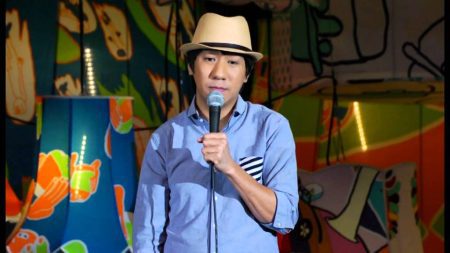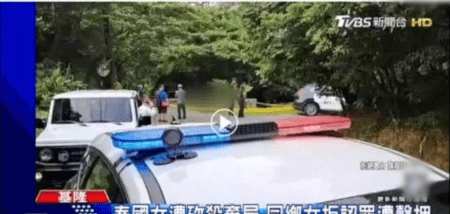The Move Forward Party has had a turbulent three years since it started as the rebirth of the disbanded Future Forward in 2020.
Its leader was suspended as an MP on charges of illegal media shareholding, and it also couldn't form a government even though it won last year’s general election.
But now it faces a looming verdict that could lead to Move Forward being dissolved like its predecessor.
Political analysts believe the main opposition party has few options to secure its political future.
For Move Forward to survive, it needs to maintain its friendship with the ruling Pheu Thai Party and its leader, Thaksin Shinawatra.
Olarn Thinbangtieo, a lecturer at Burapha University’s Faculty of Political Science and Law, notes that Thai politics now has three centers of power: the old conservative power group, Thaksin, and Move Forward.
According to him, Move Forward understands that conservatives and Thaksin are working together to eliminate what is now Thailand’s most popular political party.
But Thaksin also wants to keep good relations with Move Forward to enhance his bargaining power with the conservative establishment.
It seems Thaksin’s strategy is to benefit from maintaining a balance between the conservatives and Move Forward.
Knowing that signs indicate its possible dissolution due to efforts to reform the lese majeste law, Move Forward is forced to align with Pheu Thai and raise suspicions among the conservative establishment.
The opposition party has refused to scrutinize the Pheu Thai-led government over alleged double standards and special treatment for Thaksin during a six-month stay in hospital instead of prison.
Additionally, Move Forward has not called for a censure debate against the government, choosing a milder scrutiny of a general parliamentary debate instead.
Political triangle
These actions have raised suspicion among conservative powers that Move Forward has partnered with Thaksin.
“Move Forward has no choice but to maintain this balance of power for as long as possible.”
“The party sees a high chance of being dissolved, so it has decided to maintain its popularity in preparation for the next election,” Olarn said.
He added that because the party was recently banned by the Constitutional Court from campaigning to change the lese majeste law, it would now focus on reforming the country’s four major institutions – the military, police, justice system, and bureaucracy – which are pillars of the monarchy.
He alleged that Thaksin and Move Forward were working together to undermine public confidence in the four institutions, to pave the way for monarchy reform.
Olarn anticipates that the opposition party will concentrate on attacking the four institutions in the upcoming general debate.
The analyst also believes that Move Forward’s reformist agenda will continue to have support among voters.
If this is the case, its long-term partnership with Pheu Thai will likely help the party gain power for the first time in the next election.
According to Olarn, if Pheu Thai wants to regain power, it will have to team up with Move Forward because they have no other option.
The old conservative group is the most disadvantaged in this power triangle.
He predicted that when Thaksin and Yingluck [Shinawatra, his sister] are free, Pheu Thai will stop working with the conservatives, and the conservatives will be in trouble.
Thaksin was released on parole last month, and his sister Yingluck, a former prime minister, is expected to come back to Thailand later this year as part of a hidden agreement.
Feared lifelong prohibition
The analyst identifies Move Forward’s main challenges as the dissolution case and another case involving 44 of its MPs, including former leader Pita Limjaroenrat, who are accused of serious ethical violation for supporting a motion to change the lese majeste law.
On Tuesday, the Election Commission decided to ask the Constitutional Court to dissolve Move Forward and prevent its leaders from participating in politics.
This decision came after the Constitutional Court ruled in January that the party’s campaign to modify or abolish Article 112 showed an intention to undermine the monarchy.
Last month, the National Anti-Corruption Commission accepted a petition alleging serious ethical breaches by the 44 Move Forward MPs and asking it to send the case to the Supreme Court.
If found guilty, the MPs could be banned from politics and political positions for life and prevented from voting for up to 10 years.
Olarn believes that Move Forward is more worried about the potential lifelong bans for key figures than about dissolution.
He explained that a new party could be quickly formed after dissolution, but finding suitable substitutes for banned politicians would be much harder.
Last week, Move Forward submitted a parliamentary proposal to establish a special committee to examine the Constitutional Court’s powers, arguing that the court sometimes interprets the highest law in a way that gives it supremacy over the legislative branch.
Olarn sees this as a “smart strategy”, as Move Forward could use any positive findings from the study to increase support among voters.
Moreover, even if the party is dissolved and its MPs are banned from politics, Move Forward’s revival could then use the study results to push for reform of the Constitutional Court, the analyst said.
‘Radical all the time’
Titipol Phakdeewanich, a political scientist at Ubon Ratchathani University’s Faculty of Political Science, sees Move Forward’s unwavering reformist principles as its main challenge.
“The party’s extreme stance on various issues increases the risk of attacks. It’s not necessary to be extreme all the time,” he said.
“You need to be moderate to persuade people who disagree with you. You need to know how to play the game without giving up your ideology. You need to know when to push and when to pull.”
In his opinion, the party’s problem lies in a strategy that sometimes undermines its stability instead of enhancing its credibility.
The expert points to certain Move Forward MPs who, he said, had not supported criticism with evidence, while others had shown very liberal tendencies by, for example, suggesting changes to National Day.
“Certain members of parliament spend too much time criticizing, just like in the past,” he stated, and suggested that they ought to gather enough information before criticizing, or else they end up looking foolish.
By Thai PBS World’s Political Desk









